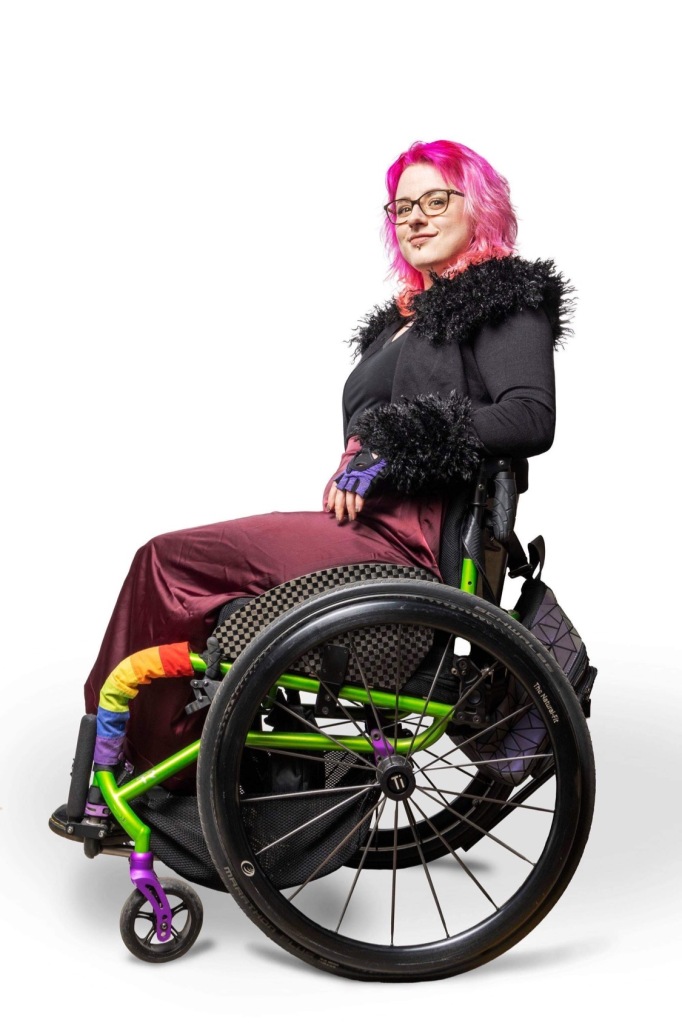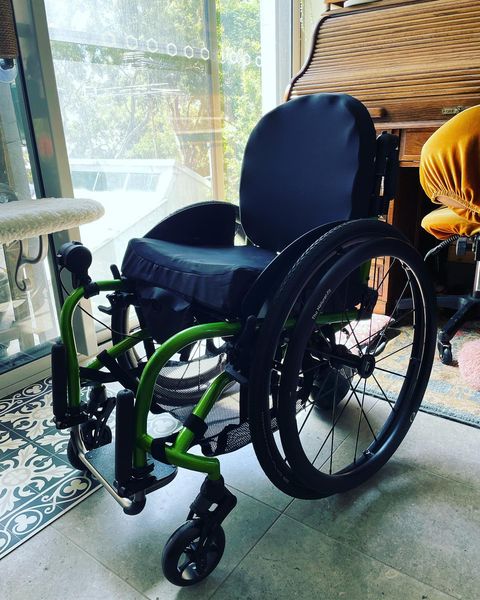I wrote this on International Wheelchair Day, which is also the Disability Day of Mourning, March 1. Archived here upon request.

My new wheelchair is finally through the manufacturing & import process, fitting appointment on Wednesday.
It’ll be my 3rd chair. 1st was a self funded bucket of junk. 2nd – this one – is a sleek $24k ndis-funded ultralight artwork, that has nevertheless begun to rust and fall apart after 4 years. 3rd is a ndis-funded $31k fine-tuned freedom machine that will hopefully serve me well.
My first wheelchair fitting was in 2015. At the time I was mostly housebound after years of rapidly declining health & mobility, in which I sought care from so many different drs and specialists that I lost count. 6 month waitlists, $550 initial consults, $600 MRIs, being told I was dying, being told I was crazy, being told I was exotic, difficult, “falling into the sick role”, being patient, trying to be a good patient, struggling to keep up with countless appointments and scans and tests trying to figure out what was happening to me. It was exhausting and expensive and soul eroding.
I didn’t want to be sick. I wanted to finish uni and go to parties and make friends and live my life. I wanted to go to the beach, get on a bus, go to the library. It took years of hell to get the answers and diagnostic reports that made me eligible for state supports.
I don’t really miss walking. When I do, it’s usually less about the walking itself and more about missing the ease and simplicity of navigating the world as someone who could walk. I miss being able to go to the pub without calling ahead. I miss dating and making new friends without being seen as a fetish or a spectacle. I miss being able to get through every unlocked door. I miss being treated like a person by everyone I met.
I miss going to house parties, jumping on the bus during rush hour even if it’s busy or the ramp is broken or the bus doesn’t have a ramp, catching a train without having to tell 5 different people and be there 15 mins early, booking tickets to a show at the last minute & trusting I can get in the door, booking a table at a restaurant without worrying about whether I’ll be able to get into the bathroom, doing anything or going anywhere on the spur of the moment without having to map out my routes in advance, catching a flight without risking my freedom at the hands of poorly trained baggage attendants.
I miss not having to manage my health like a full time job on top of my actual work. I miss having the luxury of so many hours in a day. I miss picking up casual work in workplaces that would never employ me now. I miss going places by myself without having to be hypervigilant about well-meaning – or not so well-meaning – strangers grabbing my handles and being unable to stop them.
I don’t miss the way I used to move through the world. What I miss is living in a world that was built for me.
I am grateful, now, to live in the world not built for me. It has radicalised me and taught me difficult lessons. I have learnt what solidarity looks like, about mobilising, about organising, about loving each other and living for each other.
More than anything I’m grateful to be back in the world at all, and not stuck at home in bed.
I love my wheels because they gave me my life back.

With thanks to Kerima Çevik who asked for a shareable version, and to Bill Peace, whose writing I think of often; this post and this one are of particular relevance here. RIP to a real one.





